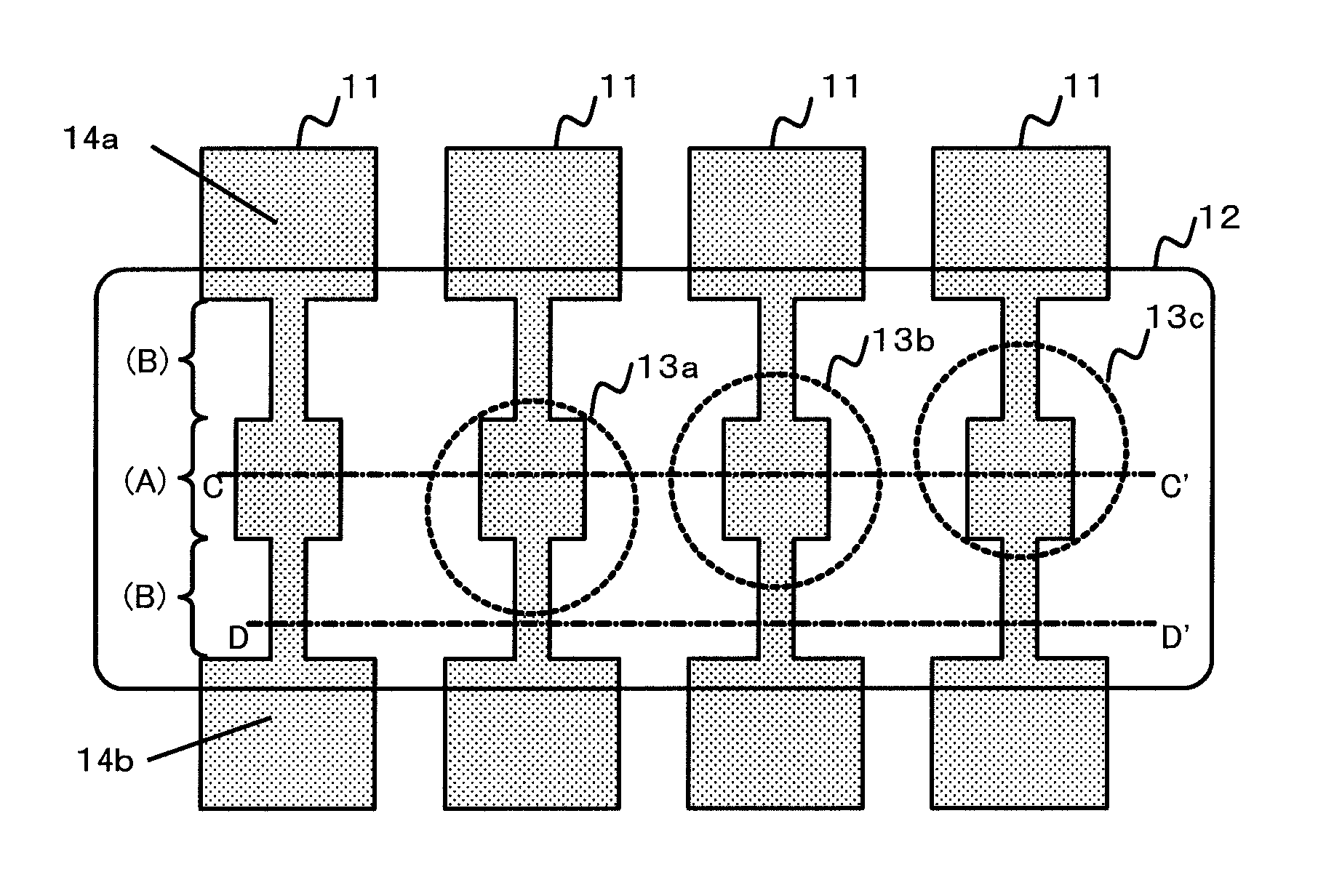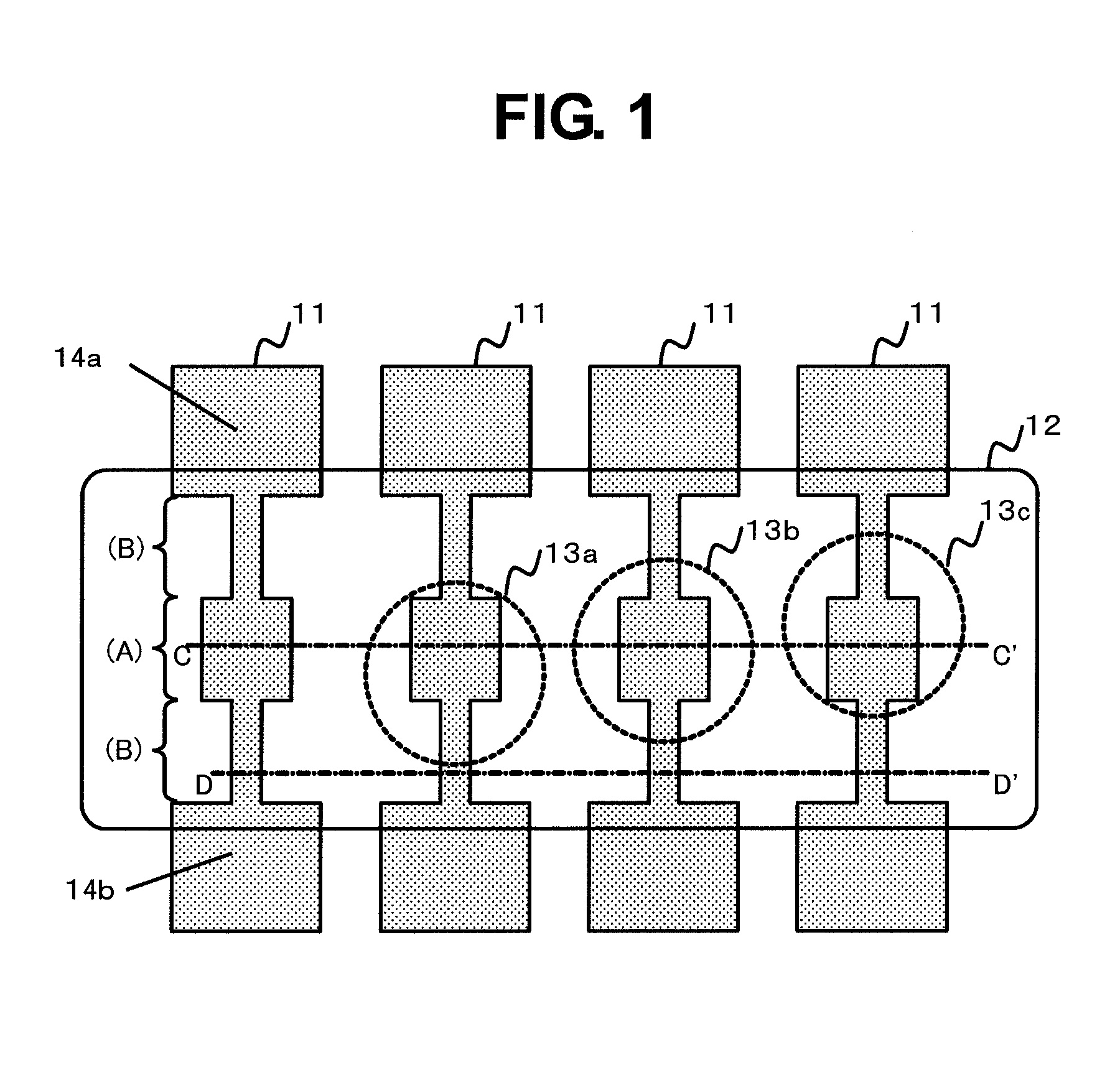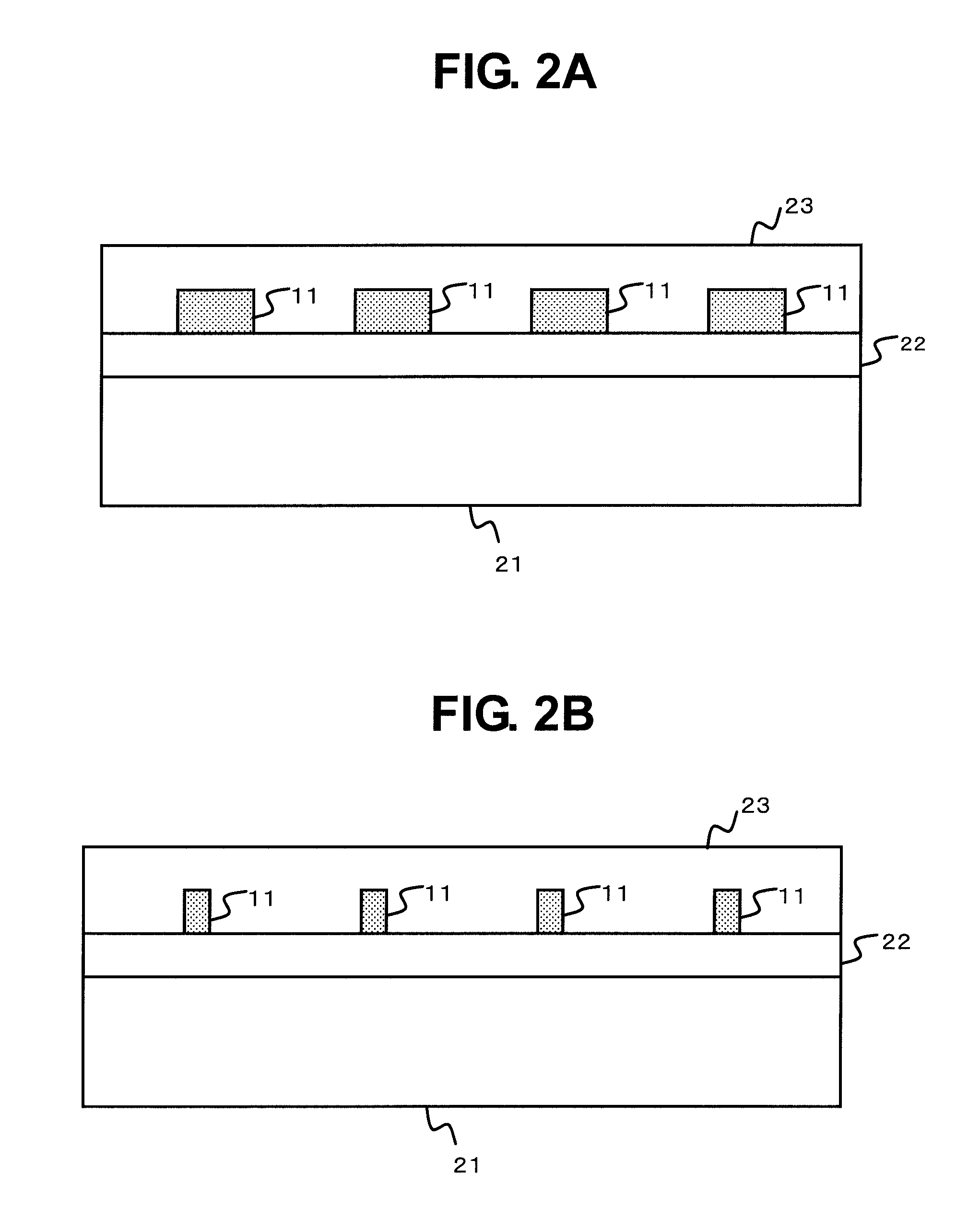Semiconductor device
a technology of semiconductor devices and devices, applied in semiconductor devices, semiconductor/solid-state device details, electrical apparatus, etc., can solve the problems of difficult cutting of fuse blades, insufficient protection of upper portions, and difficulty in obtaining a condition that satisfies both requirements, and achieves the effect of expanding the volume of the fuse elemen
- Summary
- Abstract
- Description
- Claims
- Application Information
AI Technical Summary
Benefits of technology
Problems solved by technology
Method used
Image
Examples
first embodiment
[0018]FIG. 1 is a plan view illustrating a semiconductor device according to a first embodiment of the present invention. A plurality of fuse elements 11 are arranged in parallel, and both ends of each of the fuse elements 11 correspond to first terminals 14a and second terminals 14b, respectively. The respective fuse elements are connected to a circuit via the first and second terminals 14a and 14b. The circuit determines whether or not a current flows between the terminals 14a and 14b. At the fuse element 11 that is not cut, the current flows between the terminals 14a and 14b. A dimension of the fuse element in a direction perpendicular to the current flow is referred to as a width of the fuse element. In FIG. 1, a direction perpendicular to a direction connecting the terminals 14a and 14b corresponds to the width of the fuse element.
[0019]A fuse insulating protective film opening region 12 is arranged on a region including the centers of the fuse elements 11 in order to perform c...
second embodiment
[0026]Next, a semiconductor device according to a second embodiment of the present invention is described with reference to the drawings.
[0027]FIG. 3 is a plan view illustrating the semiconductor device according to the second embodiment of the present invention. The fuse elements 11 are arranged, and the fuse protective insulating film opening region 12 is arranged over the centers of the fuse elements 11 in order to perform the cutting by the laser. The fuse protective insulating film opening region 12 is a region from which the protective film, for example, a silicon nitride film arranged on the upper portion of the semiconductor device is removed. Further, the fuse element 11 includes two regions of the large sectional area region (A) and the small sectional area region (B) as illustrated in FIG. 3.
[0028]The large sectional area regions (A) correspond to thick portions of the fuse elements 11 and are portions to be irradiated with the laser spots 13 when the cutting by the laser...
third embodiment
[0033]Next, a semiconductor device according to a third embodiment of the present invention is described with reference to the drawings.
[0034]This embodiment is a modified example of the second embodiment. As illustrated in FIG. 5, a planar structure of the semiconductor device according to the third embodiment of the present invention is the same as that of FIG. 3. That is, the semiconductor device includes the fuse element 11 including the thick portion and the thin portion. However, as illustrated in FIGS. 6A, 6B, and 6C, the semiconductor device of this embodiment has a different structure from that of the second embodiment in a sectional view.
[0035]FIG. 6A is a sectional view taken along the line C-C′ of FIG. 5, illustrating the thick portion. The insulating film 22 is formed on the silicon substrate 21, and trenches 24 are formed in the insulating film 22. Each of the trenches 24 is filled with a conductive film, to thereby form a part of the thick portions of the respective f...
PUM
 Login to View More
Login to View More Abstract
Description
Claims
Application Information
 Login to View More
Login to View More - R&D
- Intellectual Property
- Life Sciences
- Materials
- Tech Scout
- Unparalleled Data Quality
- Higher Quality Content
- 60% Fewer Hallucinations
Browse by: Latest US Patents, China's latest patents, Technical Efficacy Thesaurus, Application Domain, Technology Topic, Popular Technical Reports.
© 2025 PatSnap. All rights reserved.Legal|Privacy policy|Modern Slavery Act Transparency Statement|Sitemap|About US| Contact US: help@patsnap.com



